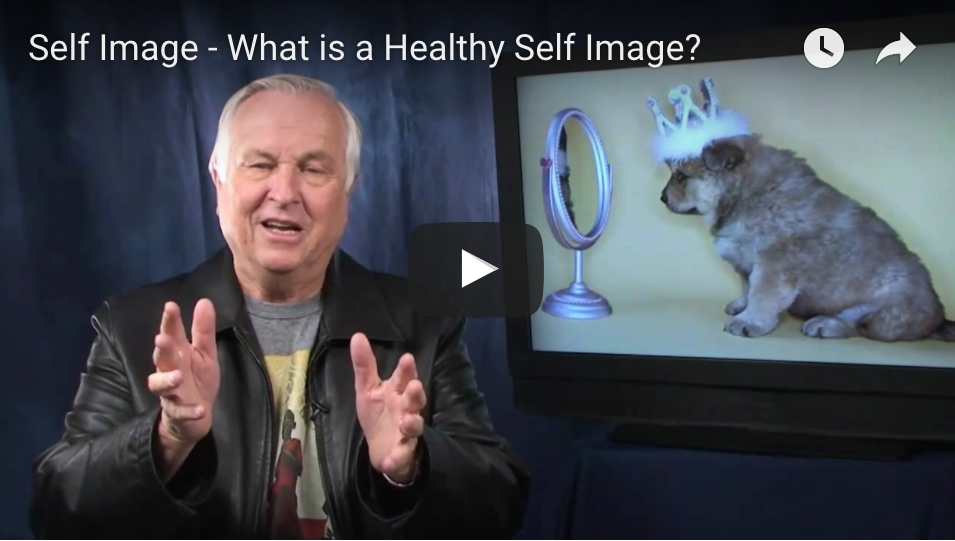Ladies, in our series exploring our true identity, let’s look at the influence that family, specifically our parents, has on our self-worth.
If your parents cherished you, you likely have a positive, healthy self-image. If instead you were coddled, you might possess a sense of entitlement. But if your parents constantly berated you or criticized you, you may picture yourself like Joanna, whom we mentioned in last week’s blog post. In Joanna’s own words, she views herself to be a slug; someone who can be counted on to mess up.
If your childhood home wasn’t picture-perfect, remember this: parents often find themselves parenting the way their parents interacted with them. We tend to repeat what was modeled to us.

God’s Intended Role for Parents
What is God’s ideal plan for developing a healthy sense of identity in children? God’s optimum design begins with parents who fully commit to loving God and one another. This couple then becomes the primary conduit of God’s love for their children. As the children receive their loving care, absorb biblical instruction, and observe their parents’ godly example, they are able to view themselves through the lens of God’s grace.
But many of us didn’t grow up in this environment.
If our parents held negative evaluations of themselves, us, and God, it was impossible for us to come to trust in God’s unconditional love for us. Young children have no clear picture of who they are apart from the input they receive. They see themselves through the eyes of their caretakers. And they typically view themselves through the lens of their most dominant caretaker. Children who are repeatedly told that they are lacking accept that evaluation, and tend to live it out, unless other people come into their life and help them to see themselves as God does.
We all need people to think about us and safely convey appropriate care, interest, concern, and support for us.
We all desire and need recognition, for others to notice the good that exists in us. Unfortunately, some of our parents, including Joanna’s dad, choose to focus on our failings and imperfections. A child who always hears that she never measures up might then approach every obstacle in life with fear.
Breaking the Chains of Unloving Parents
How did your parents relate to you? Did they treat you like a responsibility, a burden, or a distraction? Or did they make you feel special and valued, with a unique contribution to offer the world?
If you experienced a lot of negativity as a child, know that God promises to use it for your good. God uses ALL circumstances in our lives, the good and the bad, to prepare us for what He will do in us and through us. Everything that happens to us is an occasion for God to exercise His comfort us. And to prepare us to have the ability to comfort others.
If you’re having trouble forgiving a parent for their poor parenting of you, consider believing this: Your parents did the best they could. In the moment. With the maturity and life skills they had.
God’s love, as demonstrated by loving, healthy people, can break these chains of hurt. God uses people in our lives to help us understand his love. As a child and teen, Sheila desperately wanted her parents’ approval. But to relieve the stress of trying to meet their exacting demands, Sheila began cutting herself.
When her mother discovered Sheila’s secret, she shamed Sheila. Sheila tried to stop cutting herself, but couldn’t. As her mother continued to shame her, Sheila began to believe what her mother said about her: She was damaged goods. But God placed a compassionate, mature Sunday School teacher in Sheila’s life. Through their relationship, Sheila slowly began to understand and trust that God viewed her as fully valuable and competent, despite her parents’ disappointment. Sheila’s desire to cut herself stopped when she gratefully accepted the gift of God’s acceptance and affection.
Sheila adopted these four scriptures to bring her self-portrait out of the shadows and into the light:
> God completely accepts me (Colossians 1:21-22).
> He deeply loves me (1 John 4:9-10).
> He fully forgives me (Romans 5:1).
> God is working for my good in all things (Romans 8:28)
Some days, in the rough and raw moments, it can be challenging to believe that God truly is working for our good. That He can bring beauty out of ashes. But God always keeps His promises. If visual reminders help you like they do Sheila, follow her example of jotting scripture onto index cards that you can post where you’ll frequently see them. As you read them, claim and believe God’s unconditional love for you.
As you find healing, recognize that God may ask YOU to help others who are struggling to correctly see their self-identity. If God nudges you, act. Even your warm smile, at just the right moment, might make all the difference.
This blog series is based on Josh’s book See Yourself as God Sees You. It is our prayer that during this series you come to recognize and accept your true personal identity! God couldn’t love you more!




